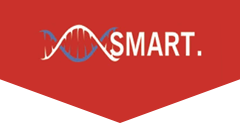Abstract
Application of sensors in food and agriculture sectors improves environmental sustainability and a bright future in addition to feeding the world's population. This emerged as a transformative way, revolutionizing traditional practices and paving the way for greater efficiency, sustainability, and food safety. This abstract provides a concise overview of the multiuse applications of sensors in the agriculture sector. Sensors play a pivotal role in precision farming. Soil sensors enable real-time monitoring of moisture levels, humidity, nutrient content, and temperature, facilitating optimized irrigation and fertilization. Weather sensors provide accurate meteorological data, assisting farmers in making informed decisions regarding planting, harvesting, and resource allocation. Temperature and humidity sensors ensure the integrity of perishable goods during transportation and storage, reducing food waste. PH sensors provides the acidic or basic nature of the soil. Internet of Things (IoT) has enabled the creation of interconnected sensor networks which helps the farmer by providing the accurate data of the field which is beneficial as well as makes them understand the condition of filed in a better way and also reduces some work load. In conclusion, sensor applications in the food and agriculture industry are pivotal in addressing the growing global challenges of food security, resource management, and environmental sustainability. As technology continues to advance, the integration of sensors and data-driven solutions promises to revolutionize these industries, ensuring a more resilient and sustainable future for agriculture and food production.
Recommended Citation
Saba, Jinnat; Tanveer, Shams; Singh, Soumyata; Layek, Sanghamitra; and Mondal, Bikas
(2024)
"Development of IoT BasedMonitoring Systemin SmartAgriculture,"
American Journal of Electronics & Communication (AJEC): Vol. 4:
Iss.
4, Article 2.
Available at:
https://research.smartsociety.org/ajec/vol4/iss4/2

